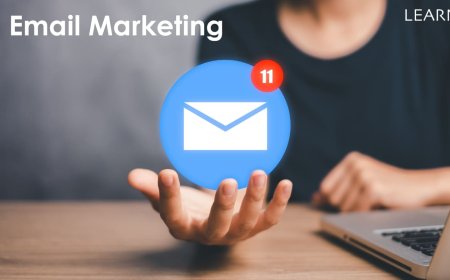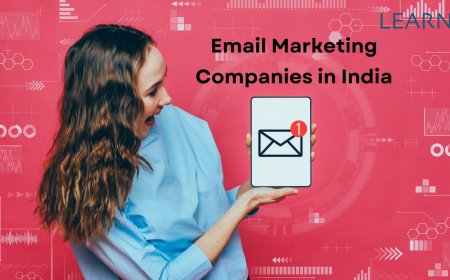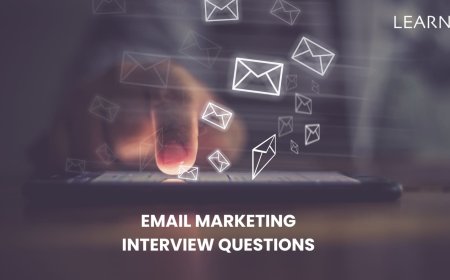Email marketing is a big deal in the world of digital marketing. It's all about sending promotional messages to people through email. And guess what? It works well! It's cheap, it reaches lots of people, and you can personalize it to make it more effective. Everyone gets bombarded with ads all the time, so making your email stand out is important. One way to do this is by using fancy techniques to divide up your audience and send them stuff they're interested in. This makes your emails more relevant, making people more likely to pay attention.
Another cool thing about email marketing is automation. This means setting things up so your emails get sent automatically based on what people do. For example, if someone puts something in their online shopping cart but doesn't buy it, you can send them a reminder. It's like having a little robot helping you out. Email marketing is a mix of being creative and using data to get results. It lets you be creative with your emails while also using information about your customers to make them better. And as businesses keep on using digital marketing, email is staying as important as ever. It's a great way to connect with people and make sure they keep coming back to your business.
The Importance of Email Marketing
Email marketing is a crucial part of online marketing for businesses. It's like a trusty tool that keeps working well, even as things change quickly in the digital world. With email, businesses can send personalized messages directly to people's email inboxes. This is important because there's so much information online, and email helps companies stand out and talk directly to their customers. What's great is that email marketing fits right in with other online marketing strategies like SEO, SEM, content marketing, social media marketing, and PPC advertising. By using email alongside these other methods, businesses can reach more people and get them engaged across different platforms. Thanks to cool things like automation and data analysis, marketers can make their email campaigns even better. They can test different things, send emails to specific groups of people, and make messages personal. This means more people open emails, click on links and buy stuff.
Email Marketing Challenges and Advantages
Email Marketing stands out as a powerful tool for connecting with customers. But behind its simplicity, there are some tricky parts that marketers need to handle carefully. Let's take a closer look at the ups and downs of Email Marketing within the broader scope of Digital Marketing strategies.
1. Getting Past Spam Filters: A big challenge in Email Marketing is making sure your emails land in people's inboxes. With tough spam filters, even legitimate emails can get blocked. Marketers need to be smart about how they craft their emails to avoid triggering these filters and make sure their messages get through.
2. Keeping People Interested: With everyone getting tons of emails every day, grabbing and holding onto people's attention is tough. Writing catchy subject lines, personalizing content, and using eye-catching visuals are all important to stand out. But it's a fine line between being informative and being annoying.
3. Dealing with Regulations: Email Marketing is regulated by laws like CAN-SPAM and GDPR. Following these rules is crucial to avoid hefty fines and damaging your brand's reputation. It means understanding the rules and making sure your emails comply with them.
4. Respecting Privacy: In a time when people care a lot about privacy, using customer data for Email Marketing needs to be done carefully. Marketers have to be transparent about how they use data and make sure they have permission to use it. It's about giving customers control over their information while still making emails personalized.
Advantages of Email Marketing in Online Marketing:
-
Cost-Effective: Compared to traditional marketing, Email Marketing is affordable and gives a good return on investment.
-
Targeted Messages: You can send emails to specific groups of people based on things like their age, interests, and past behavior.
-
Measurable Results: Digital tools let you see how well your emails are doing in real-time, so you can make changes to improve them.
-
Works Well with Other Strategies: Email Marketing fits nicely with other online marketing methods like SEO, SEM, and social media.
Email Marketing has its challenges, but it's also a valuable tool in the world of Digital Marketing. By understanding and tackling these challenges, businesses can make the most of their email campaigns and see real growth.
How can businesses make their email marketing better?
Businesses can make their email marketing better by doing a few things. First, they should focus on making their email list specific to the people they want to reach. It's important to send emails that are interesting to the people getting them. Personalizing emails, like using someone's name, makes them more likely to read them. Having catchy subject lines and short, clear messages helps too. Using tools to automate parts of sending emails can save time. For example, they are sending a thank-you email automatically after someone buys something. Checking how well emails are doing, like how many people open them or click on links, helps businesses know what's working and what's not. Following rules about how data is used and letting people decide how often they get emails is important too. This helps keep customers happy and trusting the business.
Tips for Successful Email Marketing
Email marketing is a powerful way for businesses to connect with customers and boost sales. Here are some simple strategies to make your email campaigns successful:
1. Get the Right People on Your List: Instead of just collecting a bunch of email addresses, focus on gathering ones from people who are genuinely interested in your business. You can do this by asking for emails on your website or at events.
2. Make Your Emails Interesting: Catch people's attention with exciting subject lines and messages tailored to their interests. Use pictures and videos to keep things engaging.
3. Make Sure Your Emails Look Good on Phones: Most people check their emails on their phones, so make sure your emails are easy to read on small screens. Keep them simple and easy to scroll through.
4. Personalize Your Emails: Use what you know about your subscribers to make your emails feel more personal. Mention their name or suggest products they might like based on their past purchases.
5. Automate Your Emails: Save time by setting up automatic emails to go out when someone signs up for your list or makes a purchase. This keeps your customers engaged without you having to do anything.
6. Test Different Things: Try out different subject lines, buttons, and layouts to see what gets the best response from your subscribers. Use what you learn to make your emails even better.
7. Keep an Eye on How Your Emails are Doing: Pay attention to things like how many people open your emails and how many click on links. This will help you figure out what's working and what isn't.
Now, let's talk about some tools you can use to make your email marketing even easier:
-
Mailchimp: (Website: www.mailchimp.com): Mailchimp is easy to use and has lots of features to help you send great emails, like templates and analytics.
-
Constant Contact: (Website: www.constantcontact.com): This is a good option for small businesses because it's simple and has tools to help you manage your contacts and track your emails.
-
HubSpot: (Website: www.hubspot.com): HubSpot has lots of different marketing tools, including email, so you can keep everything in one place.
-
Campaign Monitor: (Website: www.campaignmonitor.com): This tool lets you create emails with a drag-and-drop editor and track how well they're doing.
-
ConvertKit: (Website: www.convertkit.com): ConvertKit is designed for people who create content online, like bloggers and YouTubers. It's easy to use and has features like automation.
-
GetResponse: (Website: www.getresponse.com): GetResponse has lots of tools to help you grow your audience, like email and webinars.
-
AWeber: (Website: www.aweber.com): AWeber is good for businesses of all sizes and has customizable templates and analytics to help you track your success.
Email marketing is still important for businesses online. It helps them reach lots of people and get them engaged. By sending personalized emails, dividing up their audience, and using automation, businesses can keep in touch with customers, sell more stuff, and make people like their brand more. But to do it right, they need to send emails that matter to people and not bug them too much. And they have to keep up with new tech stuff and make sure their emails look good on phones. By being smart and ethical, email marketing stays useful for making connections and growing businesses online.




































